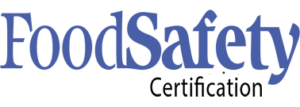Ottawa First Aid has the best food handler certification program in the province, with the curriculum including all the topics required by the Ontario Ministry of Health and Long Term Care’s Health Protection and Promotion Act. If you are a food handler or food service worker in Ottawa, you can register for our program with Food Safety in Ottawa in order to get certified (which is a requirement mandated by the health act). However, our programs are not restricted to people working in food service; if you are simply interested in learning food safety and sanitation, you are free to sign up for our training.
Registration and enrollment
If you visit the Ottawa First Aid website, we have an online registration form available. The form is not downloadable, but is an interactive form you can fill up online. After you click submit, we will receive the details you entered in the form. Requests sent through the website (or e-mail) will be processed during regular business hours; please expect a reply between 9 AM and 4 PM.
You can pay for the training program in cash, via credit or debit card, or cheque (payable to the City of Ottawa).
Food Handler Training in Ottawa
The Food Handler Certification program we offer at Ottawa first Aid is a food safety training course that teaches students about safe food handling. Whether you work in a food establishment or simply cook food at home, the skills and concepts we will teach you will indeed prove useful. The course itself is a one-day training program, created to meet the needs of food service workers in the city. The objectives of the course include teaching students about:
- The role of the food service worker in foodborne illness
- Basic microbiology (focusing on bacteria)
- Prevention of foodborne illness
- Hygiene, health, and sanitation in the workplace
- Emergency response to a case of foodborne illness
The food handler program is available in different ways. The most popular is the full course, which includes a classroom-based set-up, training materials, and the course exam. Exam-only sessions are also available, including workbooks for students who choose to self-study.
An introduction to foodborne illness
Foodborne illness is a (commonly) self-limiting disease, meaning it resolves within the first few days. However, it is very dangerous for children and older persons – because they are more prone to dehydration. Foodborne illness is not just one disease, however the signs and symptoms are usually the same for all conditions categorized under it. A person with a foodborne illness will usually experience vomiting, nausea, diarrhea, stomach pain and cramps, and appetite loss.
Dehydration is quite common for severe vomiting and diarrhea. Management involves fluid and electrolyte replacement, either orally or intravenously. Oral rehydration is adequate for mild cases, but more severe cases might need medical management in a health care facility.
The most common microorganisms that cause foodborne illness are the Norovirus (which is responsible for more than half of the cases of FBIs), Salmonella (non-typhoidal), Clostridium perfringens, Campylobacter, and Staphylococcus aureus. You will learn more about this in a training course at Ottawa First Aid.
